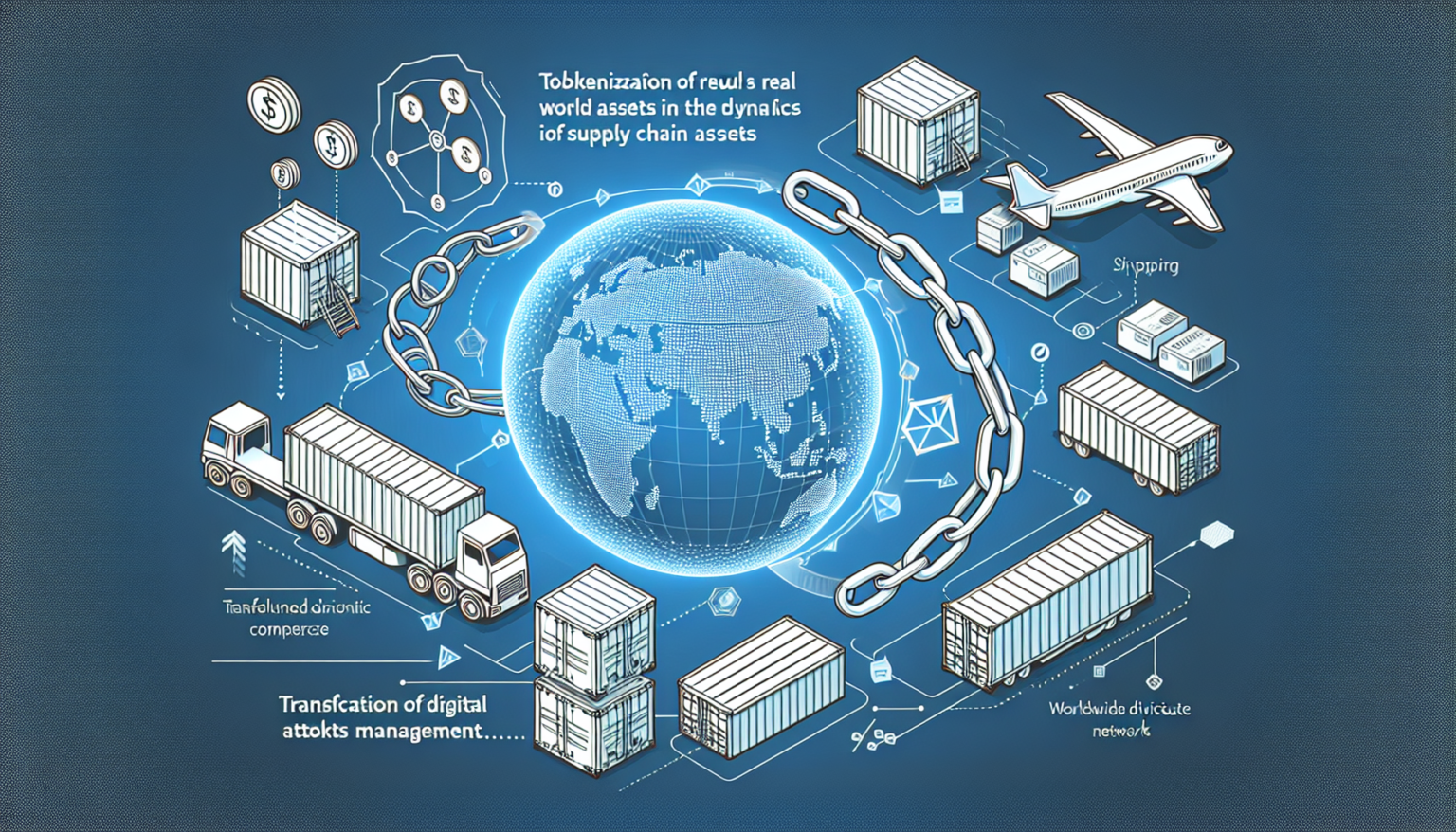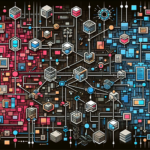Understanding Real-World Asset Tokenization
What is Tokenization?
Tokenization refers to the process of converting ownership of real-world assets into digital tokens. These assets can range from real estate, commodities, and vehicles to entire supply chains. By utilizing blockchain technology, tokenization creates a secure and transparent way to buy, sell, or trade these assets. Each token serves as a digital representation of an asset, enabling fractional ownership and allowing for seamless transactions.
How Does It Work?
The tokenization process generally begins with the creation of a digital token that represents an asset. This token is then recorded on a blockchain, which acts as a decentralized ledger. Each time an asset changes hands or its ownership is updated, the blockchain is updated to reflect these changes. Smart contracts can also be integrated into this system to automate transactions, ensuring that specific conditions are met before a transfer occurs.
The Role of Supply Chain Management
Defining Supply Chain Management
Supply chain management (SCM) is crucial for businesses that rely on the flow of goods and services from suppliers to customers. It involves managing the entire production flow, from sourcing raw materials to delivering finished products. Effective SCM ensures efficiency, reduces costs, and enhances customer satisfaction. However, traditional supply chains have faced challenges such as lack of transparency, inefficient processes, and susceptibility to fraud.
Challenges in Traditional Supply Chains
Lack of Transparency
One major issue with traditional supply chain management is the lack of transparency. Multiple parties often handle goods during transit, making it hard to track every step of the process. This opacity can lead to confusion regarding the origin, quality, and ownership of products.
Inefficiencies
Traditional supply chains often involve cumbersome paperwork and manual processes that can slow down operations. In many cases, this means unnecessary delays that affect delivery times and increase shipping costs.
Risk of Fraud
Fraudulent activities in supply chains, such as counterfeit goods or misrepresentation of supply sources, pose another significant challenge. In industries like food and luxury goods, the consequences of fraud are particularly damaging, leading to financial losses and reputational damage.
How Tokenization Addresses Supply Chain Challenges
Enhanced Transparency
Real-world asset tokenization introduces a level of transparency that traditional supply chains have struggled to achieve. Every transaction is recorded on the blockchain, allowing all parties involved to access the same information in real-time. This transparency not only helps in tracking the ownership of assets but also verifies the provenance of products.
Immutable Records
The nature of blockchain means that once data is recorded, it cannot be altered retroactively. This characteristic creates an immutable record of every transaction, reducing the risk of fraud and increasing accountability among supply chain participants.
Improved Efficiency
Tokenization can streamline supply chain processes by automating transactions through smart contracts. These self-executing contracts can perform specific actions once predefined conditions are met. For instance, a payment could automatically trigger once a product is delivered and verified, eliminating the need for manual invoicing and approval processes.
Reduced Costs
With improved efficiency, companies can expect significant cost savings. Automated processes lead to fewer errors and reduced need for intermediaries, thus cutting down on administrative costs. In turn, companies can pass these savings to consumers or reinvest them into other areas of the business.
Mitigating Fraud
Tokenization minimizes the risk of fraud by allowing for the verification of asset authenticity and ownership. Scannable QR codes or NFC chips linked to tokens can provide real-time data about an asset’s history and current status, alerting parties to any discrepancies.
Use Cases of Tokenization in Supply Chain Management
Food Supply Chains
One of the most impactful applications of tokenization is in the food supply chain. By tokenizing each batch of produce, stakeholders can trace every step from farm to table. This contributes to food safety and allows consumers to verify the quality and sustainability of the products they purchase.
Traceability
Consumers are increasingly interested in knowing where their food comes from. With tokenization, businesses can provide consumers with detailed information about the origins of their food products, enhancing trust.
Luxury Goods
The luxury goods market has long been plagued with issues of counterfeit products. Tokenization provides a solution by giving each luxury item a unique digital token tied to its authenticity. A buyer can easily verify the item’s provenance, drastically reducing the chances of fraud.
Certificate of Authenticity
Manufacturers can issue a token as a certificate of authenticity, which accompanies each luxury item. This token can be checked at any point in the supply chain, ensuring that each item remains genuine.
Pharmaceutical Industry
In the pharmaceutical sector, ensuring the authenticity of drugs is crucial for patient safety. Tokenization can enable secure tracking of pharmaceuticals, from production to delivery at pharmacies. Every transaction along the supply chain can be logged, making it easier to identify counterfeit medicines.
Regulatory Compliance
By storing detailed records of transactions, companies can more easily demonstrate compliance with regulations, thereby avoiding hefty fines and enhancing corporate reputation.
The Future of Supply Chain Management with Tokenization
Integrating IoT with Tokenization
The future of supply chain management may involve integrating Internet of Things (IoT) devices with tokenization. IoT sensors can provide real-time data on asset conditions, such as temperature and humidity for perishable goods. When combined with tokenization, stakeholders can take immediate actions based on the information received.
Predictive Analytics
With better data and analytics from IoT devices, companies can forecast demand more accurately, ensuring efficient production and inventory management. The combination of real-time data and tokenization could revolutionize decision-making in supply chains.
Wider Adoption Across Industries
As businesses realize the benefits of tokenization in supply chain management, we could see a larger shift across various industries. Sectors like automotive, textiles, electronics, and others can leverage tokenization to enhance their supply chains, ultimately leading to better customer experience and lower operational costs.
Challenges to Overcome
Regulatory Hurdles
Despite its potential, tokenization faces regulatory challenges. Governments across the globe are still working to understand and develop frameworks for the use of blockchain and tokenization. Navigating this regulatory landscape can be complex for businesses looking to adopt tokenization.
Technological Barriers
Implementing blockchain technology requires significant investment in infrastructure and training. Some organizations may lack the necessary technical expertise, creating a barrier to entry for small and medium-sized enterprises.
Data Privacy and Security Concerns
With sensitive data being recorded on blockchains, there are also concerns regarding data privacy and security. Companies need to find a balance between transparency and protecting proprietary information.
Conclusion
Real-world asset tokenization is positioning itself as a game-changer in supply chain management. As more companies begin to embrace this technology, we can expect to see more efficient, transparent, and secure supply chains.








